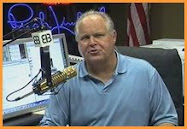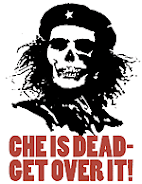In two words: Karl Marx
Interview with Yaron Brook in NewsWeek
It's not easy being Alan Greenspan these days. As the former Federal Reserve chairman, he urged government regulators to take a light touch while banks like Bear Stearns and Lehman Brothers buried themselves—and the economy more generally—under a mountain of debt. Now that his reputation is plummeting faster than the stock market, he's been forced to admit a "flaw" in his hands-off ideology.
Of course, things look entirely different to members of "free-market advocacy groups," as they like to be called. One such group is the Ayn Rand Institute, named after the matriarch of the movement, whose antigovernment and anti-regulation views are embodied in her best-selling novels "Atlas Shrugged" and "The Fountainhead." Indeed, Greenspan himself was a friend of Rand's, and a devotee of her extreme free-market philosophy, known as Objectivism. NEWSWEEK's Barrett Sheridan spoke with the head of the Ayn Rand Institute, Dr. Yaron Brook, about why he defends free markets while much of the rest of the world has turned away from them, and what he thinks of Greenspan today. Excerpts:
NEWSWEEK: Lack of regulation is being blamed for our current crisis, and free markets are in disrepute. Has Objectivism been dealt a deathblow?
Yaron Brook: No, not at all. From a public-relations perspective, it's been hurt. But in the long term there will be a backlash against what's going on in the markets today—the heavy government involvement, the nationalizations and the move toward socialism. If the free-market advocacy groups position themselves correctly, they can benefit from it.
How can they do that? 
What we need to do is really make the case to the American people—and I think it's an easy case to make—that this is not a failure of free markets, this is not a failure of capitalism, but this is a failure of the exact opposite. It's a failure of the regulatory state. It's a failure of all the government policies of the last eight years. Actually, the last 95 years.
Why do you say the last 95 years?
I believe that the No. 1 cause of the current crisis is Federal Reserve policy. [The Federal Reserve was created in 1913.] The Federal Reserve, by necessity, creates economic problems; no matter how good a Federal Reserve chairman is, he's going to create cycles of booms and busts.
The current crisis was caused by the housing bubble, and the primary cause of the housing bubble was the Federal Reserve keeping interest rates at 1 percent in 2003. They were asking people to borrow money, basically begging them. The financial problem we face today was a problem of overleverage, of too much debt—but that's exactly what Federal Reserve policy encouraged.
Continue reading in NewsWeek































No comments:
Post a Comment